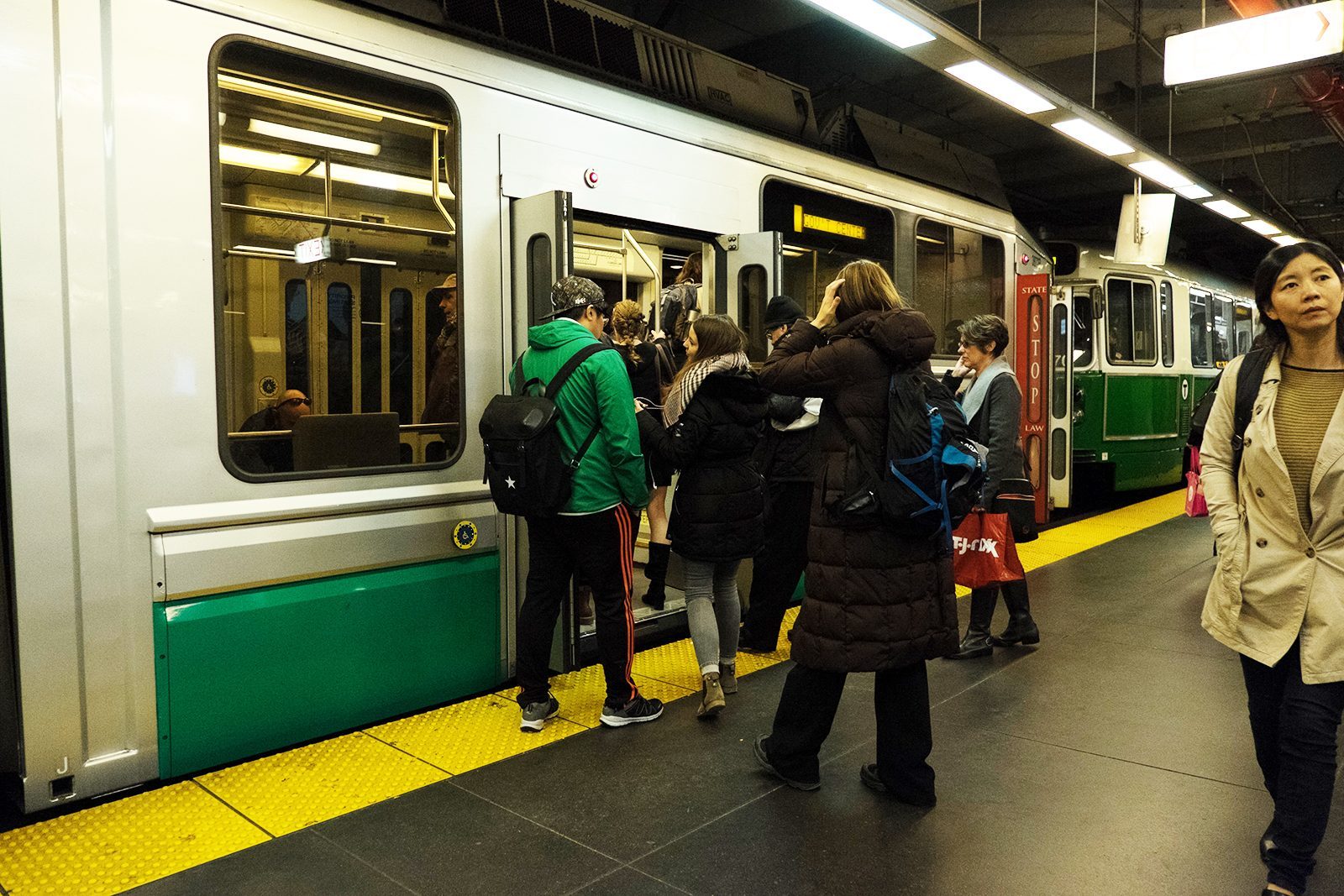
Boston was ranked the third-best city for public transit in a recent report published by Redfin, a Massachusetts-based real-estate company. New York City and San Francisco placed first and second in the report, respectively.
The report showed that while Boston’s rank has remained the same since 2012, it is on the list of cities with the biggest decrease in score from 2016 to 2018 with a 1.8-point decrease.
Jon Whitely, the author of the Redfin report, said even with infrastructure already in place to “rock public transits,” the lack of investment and fewer transit options during rush hours may explain the score drops for Boston and other cities.
“I think what’s happening — and this is just in general of what we’ve seen — is there’s not a whole lot of investment in the infrastructure anymore,” Whitely told The Daily Free Press. “It almost seems as though people are just kind of settling and not upgrading or updating.”
Boston’s score of 72.6 this year was close to the threshold of 70, which is considered “excellent transit” by the report, Whitely said.
“I would argue that I think Boston needs to do a little better of a job,” Whitely said.
Gladys Gonzalez, 21, of Allston, said she is a regular commuter and thinks the T is both time- and money-saving. She said she thinks the trains should be renovated to attract more people to use public transportation.
“There [are] a lot of international people [in Boston],” Gonzalez said. “It will also help them save money and explore around the city.”
In response to the report, Massachusetts Bay Transit Authority Communications Director Joe Pesaturo said more than $1 billion dollars will be spent this fiscal year on fixing train tracks, signals, switches and other aspects of the existing system as well as installing new vehicles, including new Orange Line cars and an “entirely new Red Line fleet.”
“We feel that once we implement all of those changes, you will see that score go back up,” Pesaturo said.
The MBTA is focused on improving the reliability of Boston’s public transit system, Pesaturo said, which has been a major concern for customers.
“Customers just want a service that they can depend on,” he said.
The report reflects an incomparably wide array of public transit options available to Boston commuters, Pesaturo said, including heavy rail subway, light rail, trolleys, streetcars, trackless trolleybuses — buses that operate on electricity — traditional buses, ferries, paratransit service and commuter rail service.
“It shows that people of Greater Boston depend heavily on a good public transportation system,” Pesaturo said. “In the case of BU, the Green Line goes right through the middle of the campus. It makes sense for [BU students] to use the Green Line and that’s why we are focused on making improvements there as well. Because we want to attract as many college students as possible to public transportation.”
Michael Martinez, 23, of Back Bay, said the uneven distribution of T lines throughout the city reflects inequality.
“What I don’t like [is that] there’s only one line that goes up to Roxbury and that’s the Orange Line,” Martinez said. “I think with more community reinvestment out in those areas and making it more convenient for people of lower income obviously [are] very important.”
The report used a data-based tool called Transit Score to rate locations based on their convenience to public transportation. Each city’s score summed up the usefulness of its public transits by taking into account the distance to the nearest stop on the route, the frequency of the route and the type of route, Whitely said.
The main purpose of the report was to provide public transit information for home-buyers to make educated home-buying decisions, he said. He explained that the Transit Score has become an increasingly important criterion for home-buyers when evaluating the accessibility of a location.
“They want to be able to jump on a train and not worry about parking [or] taking all day to get to a destination,” Whitely said. “I feel like [Boston] should be progressing especially in this day of age because home-buyers do value access to public transits.”
Michael Ingram, 29, of Roxbury, said public transportation in Boston is important in allowing students or low-income residents the opportunity to explore the city.
“The best part about a city is all the things you can do and all the opportunity you have there, but if you can’t get to the opportunity, none of it really matters,” Ingram said. “For people of low-income or [students] or just people who for whatever reason don’t have their own transportation, it’s wonderful to be able to reach those opportunities every minute of your life.”






















































































































Jack Rosenburg • Feb 26, 2018 at 12:15 pm
It’s obvious that redfin doesnt take the redline.